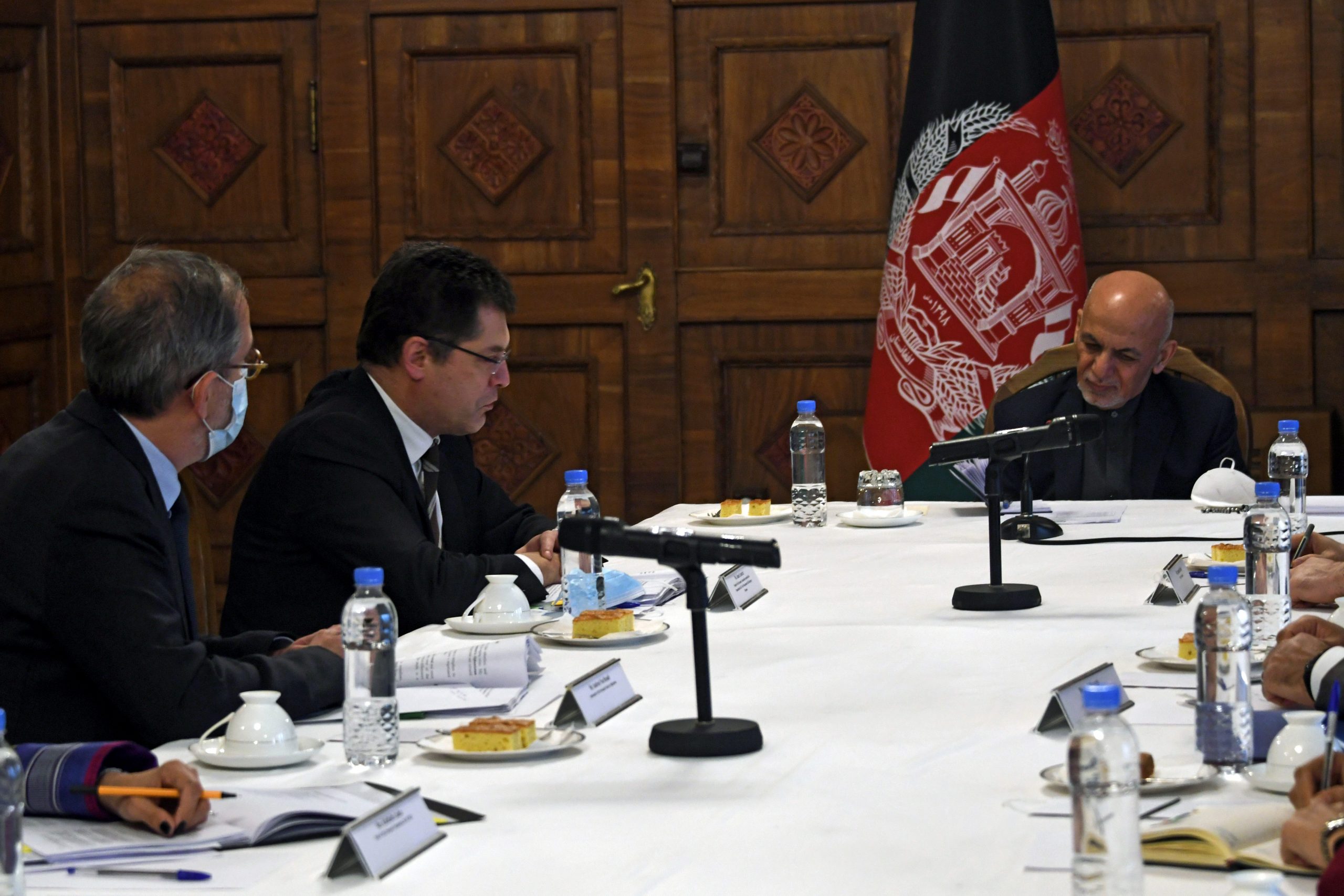Commissioner for Crisis Management in Kabul: EU steps up humanitarian assistance with €32 million
 © European Union, 2021, Source: EC - Audiovisual Service, Janez Lenarčič, European Commissioner for Crisis Management (L) with Afghan president Ashraf Ghani (Center ) at Presidential Place in Kabul, Afghanistan, Feb.3,2021.
© European Union, 2021, Source: EC - Audiovisual Service, Janez Lenarčič, European Commissioner for Crisis Management (L) with Afghan president Ashraf Ghani (Center ) at Presidential Place in Kabul, Afghanistan, Feb.3,2021.Commissioner for Crisis Management, Janez Lenarčič has concluded an official visit to Kabul, Afghanistan, as the country tries to move beyond one of the deadliest conflicts worldwide, lasting decades. The visit was the first of an EU humanitarian affairs Commissioner in several years and aimed to maintain EU support following 2020 Afghanistan Conference towards bringing peace to the country. During the visit, the Commissioner announced €32 million in humanitarian support to assist the civilians affected by the conflict for 2021
Janez Lenarčič, Commissioner for Crisis Management, said: “Whilst peace negotiations are ongoing, humanitarian aid can be the central way to reach more than half of the population in the country, some 19 million people. It is paramount that all parties to the conflict facilitate the delivery of humanitarian assistance and expand safe and unhindered access to the most vulnerable. Moreover the protection of civilians, of education facilities, of hospitals and humanitarian missions cannot wait till the end of the peace negotiations. For them to conclude successfully, respect of International Humanitarian Law to safeguard lives is an essential prerequisite for a lasting peace and sustainable future of the country.”
New EU humanitarian assistance
During the visit, the Commissioner announced €32 million in humanitarian support to assist the civilians affected by the conflict for 2021. This brings the total EU humanitarian aid in Afghanistan since 1994 to over €1 billion.
This emergency support will help EU humanitarian partners to deliver basic assistance such as life-saving healthcare and protection services, including food and emergency shelter, education in emergencies to those affected by conflict, disasters and epidemics. All EU humanitarian funding is provided in line with the humanitarian principles of humanity, neutrality, impartiality and independence.
High level meetings
The Commissioner met H.E. President Ashraf Ghani as well as Dr. Abdullah Abdullah, Chairman of the High Council for National Reconciliation. Additionally, a meeting with Ramiz Alakbarov, Deputy SRSG/Humanitarian Coordinator took place, along with key UN partners such as WHO, WFP, UNICEF and international NGOs. The Commissioner met civil society representatives to discuss the importance of women participation in building the future of Afghanistan.
Background
According to the UN, Afghanistan saw a high number of civilian casualties between January and September 2020, with close to 6,000 people killed or injured, despite the launch of official peace negotiations in September. Violence continued all through the year. In 2020, almost 280,000 people fled their homes due to conflict, raising the number of displaced people to around 4.1 million. Since the coronavirus pandemic began, attacks against medical and educational facilities have multiplied.
Given the intensity of the conflict and the level of humanitarian needs, the EU’s priority is to provide life-saving assistance. In 2020, the EU allocated close to €70 million in humanitarian support to ensure critical relief assistance to the most vulnerable including the victims of war, forced displacement and natural disasters. Interventions focus on providing emergency healthcare, shelter, food assistance, access to clean water and sanitation facilities, as well as various protection services targeting women and children.
